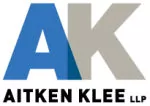- with readers working within the Insurance industries
In 907687 Ontario Inc. (c.o.b. International Institute of Travel) v. Shokour, 2017 FC 969, the Federal Court found that the plaintiff did not meet its burden of establishing copyright infringement and further held that the action was barred because it was not commenced within the three-year limitation period set out in s 43.1(1) of the Copyright Act.
The International Institute of Travel (IIT) commenced the action on January 15, 2013, alleging that the defendant, Mr. Shokour, who had been employed at IIT until 1998, had used IIT's copyrighted material to obtain Ministry approval for a new career college in 2001. Around the time that he obtained Ministry approval for his own college, Mr. Shokour began working with a former IIT franchise, which had access to IIT's copyrighted materials. In 2002, IIT inquired about Mr. Shokour’s potential access to its copyrighted materials and the former franchisee stated that the copyrighted materials were under "lock and key" and that Mr. Shokour had never been given access to them. IIT then wrote to Mr. Shokour claiming copyright in the course materials and warning "if it is discovered that you have been using any copyright or proprietary materials", IIT would commence legal proceedings.
Subsection 43.1(1) of the Copyright Act provides that an action for copyright infringement must be commenced within three years of the time when a plaintiff first knew, or could reasonably have been expected to know, of an act or omission contrary to the Act. The Court held that the correspondence established that IIT had been aware of Mr. Shokour's involvement in 2002 and confirmed IIT’s concern about potential access to and unauthorized use of copyrighted materials at the time.
IIT alleged that it was only advised in 2011 that Mr. Shokour used IIT's materials and thus argued that the limitation period began in 2011. The Court held that, even if IIT was notified in 2011, the question remained whether the material facts were discoverable earlier through an exercise of reasonable diligence. What constitutes reasonable diligence depends on the circumstances of the case and the burden rests on the plaintiff to show that the cause of action arose within the prescribed limitation period. IIT did not meet its burden. The evidence, particularly the strongly-worded demand letter in 2002, demonstrated that the material facts were discoverable with reasonable diligence in 2002.
IIT also argued that it was entitled to rely on the franchisee's representation in 2002 that Mr. Shokour did not have access to the copyrighted materials. Reliance on a party's good faith has been accepted in fraud cases and where there is evidence of willful concealment. There was no evidence of fraud or concealment here and thus IIT could not rely on the representation to get around the limitation period.
A copy of the decision can be found here.
The content of this article is intended to provide a general guide to the subject matter. Specialist advice should be sought about your specific circumstances.
[View Source]

